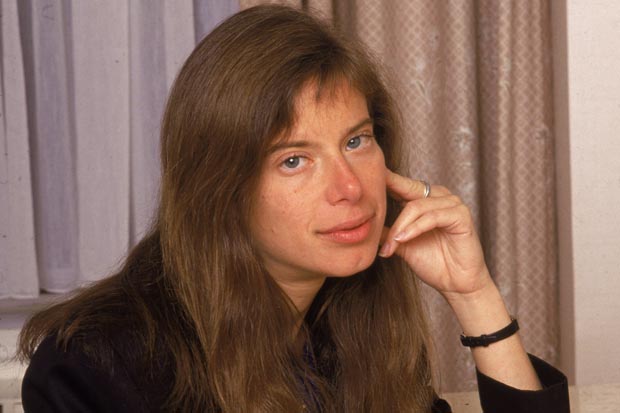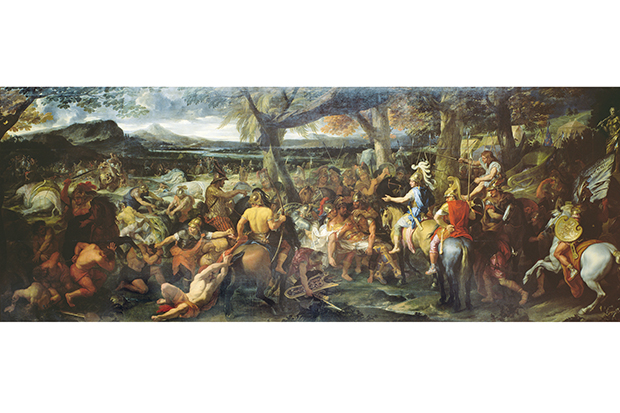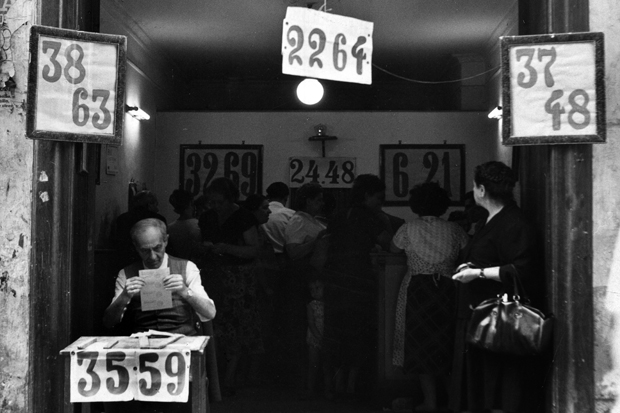In 2004, after a 25-year estrangement, Susan Faludi’s father reappeared in her life via email. ‘I have had enough of impersonating a macho aggressive man I have never been inside,’ it read, and was signed, ‘Love from your parent, Stefánie.’ The 77-year-old had embarked on a new life as a woman, both a dramatic abruption and the continuation of a biography full of reinvention. He was born as a Hungarian Jew called István Friedman, survived the Holocaust thanks to a talent for imitating Nazis, adopted the name Faludi to show he was ‘100 per cent Hungarian’, and later settled in the US, where he became Stephen Faludi, archetypal ‘American Dad’ and, as a photographer, a master manipulator of images.
In 2014, Stefánie Faludi died, and In the Darkroom is a memoir of the fraught reacquaintance between father and daughter. It’s also a record of Stefánie Faludi’s extraordinary life, and an unsettling interrogation of that modern obsession, identity. ‘Who is the person you “were meant to be”?’ asks Faludi. ‘Is who you are what you make of yourself, the self you fashion into being, or is it determined by your inheritance and all its fateful forces, genetic, familial, ethnic, religious, cultural, historical?’ Primo Levi asked If This Is a Man. Faludi looks at her father Stefánie and wonders, is this a woman? Is this a Jew? Is this a Hungarian? How much of the thing we call a self is truly negotiable?
Faludi is a feminist (she made her reputation with the agenda-setting book Backlash in 1991), and the fault line between feminism and transgender issues is one of the most perilous in current politics. Any deviation from the dogma that ‘transwomen are women full stop’ can incite furious condemnations, and possibly no-platforming and glitterbombing. The subject is beset with cliché and taboo: preferred pronouns must be meticulously and retrospectively observed, the individual is always the arbiter of their own identity, gender identity is not a fetish, and it’s objectifying to focus on surgery.
Happily, Faludi has no time for these tedious conventions. At one point, she reads every transition memoir she can find in an effort to understand her father, and confesses herself utterly frustrated by them. But Stefánie too is blissfully ignorant of the rules of political engagement. Magyar (the language István learned as a little boy) has no gendered pronouns in any case, and Faludi’s father fluffs ‘hes’ and ‘shes’ in English often and without injury. Far from being coy about the bloody details of transition, Stefánie has hers filmed — and ambushes her daughter with a screening of it. Far from denying any sexual motive, Stefánie insists on showing her favourite ‘sissy slave girl’ erotica sites to her daughter.
From this, one might imagine that Faludi and her father share a particularly intimate bond. Not at all. As a child, she found him ‘simultaneously inscrutable and volatile… distant and intrusive by turns’. He enforced his paternal authority with violence. When his wife wanted to get a job, he threw dinner plates to the floor. When his daughter threatened his authority, he smashed her head into the ground repeatedly. And when his wife left him, he broke down the door of the family home and stabbed her new boyfriend with a Swiss army knife.
In post-transition life, Stefánie still carries a knife: now it’s the pink-handled ladies’ version, equipped with manicure tools. Despite her father’s insistence that the past is ancient history, Faludi wonders how much has truly changed. Her father, ever the despot, takes satisfaction in compelling service staff and public functionaries to ‘csólkom me’ — meaning ‘kiss the hand’, an expression of conventional Hungarian chivalry. Meanwhile, a female neighbour is constantly on hand to help with cooking and cleaning: housework was appealing as a fetish, but when it comes to being a woman, Stefánie seems to draw the line at drudgery.
And behind all this, the question of Jewishness — an identity which, as Hungarian Jews learned when their Magyar neighbours enthusiastically participated in the Holocaust, cannot be slipped by sheer force of will. Faludi has her own identities to move through: cool observant journalist, affectionate daughter, critical feminist. As she does so, she finds no pat answers, but few have asked these questions with such riveting precision.
The post Daddy dearest appeared first on The Spectator.
Got something to add? Join the discussion and comment below.
Get 10 issues for just $10
Subscribe to The Spectator Australia today for the next 10 magazine issues, plus full online access, for just $10.
You might disagree with half of it, but you’ll enjoy reading all of it. Try your first month for free, then just $2 a week for the remainder of your first year.














Comments
Don't miss out
Join the conversation with other Spectator Australia readers. Subscribe to leave a comment.
SUBSCRIBEAlready a subscriber? Log in